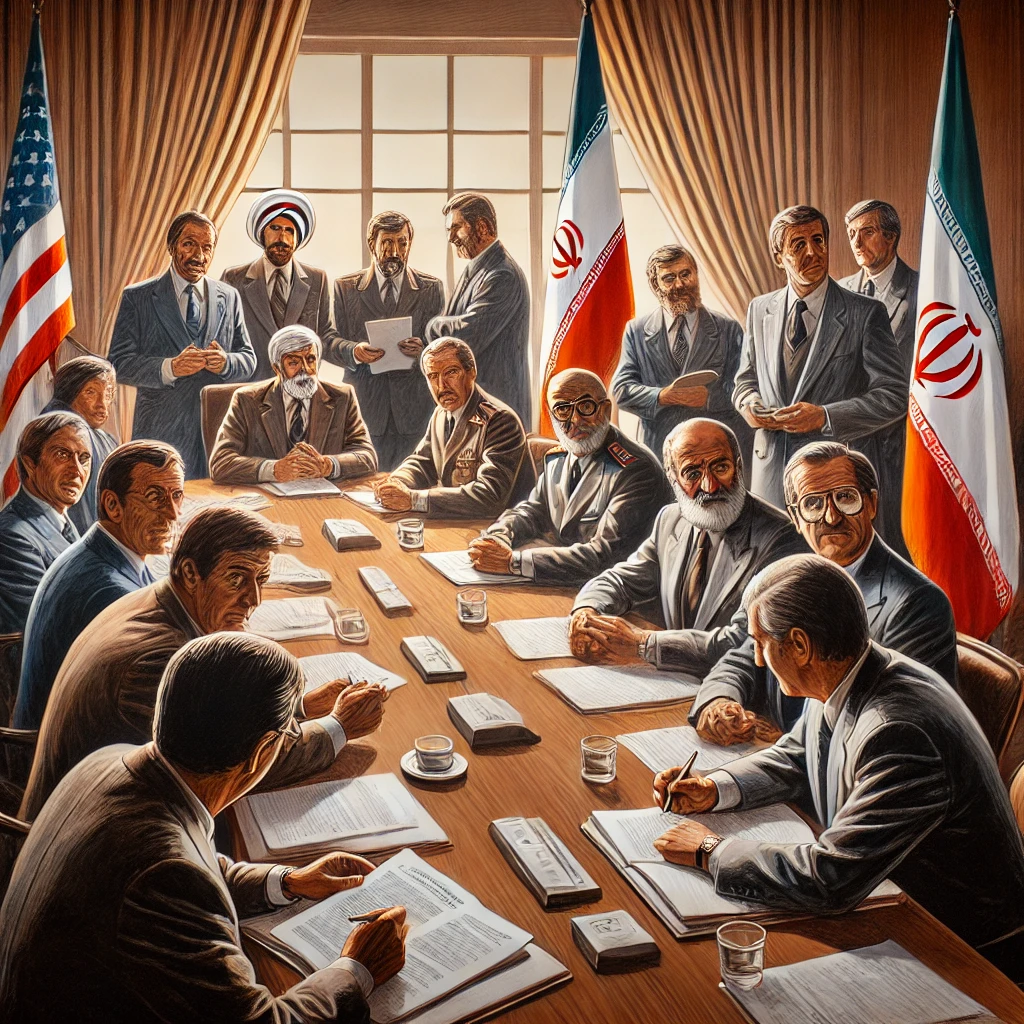A chapter in international diplomacy concluded on January 20, 1981, as the Iran Hostage Crisis ended with the release of 52 American hostages after 444 days of captivity. This moment marked the culmination of a tense and harrowing period in U.S.-Iran relations, leaving an indelible mark on global politics and international law.

The Hostage Crisis Unfolds
The Iran Hostage Crisis began on November 4, 1979, when Iranian militants seized the U.S. Embassy in Tehran. This action followed the Iranian Revolution, which saw the overthrow of the Shah, Mohammad Reza Pahlavi, and the rise of Ayatollah Khomeini as the Supreme Leader. The militants demanded the Shah’s extradition to Iran to stand trial for alleged crimes against the Iranian people. The crisis quickly escalated into an international standoff, capturing the world’s attention and sparking outrage in the United States.
The 52 Americans, including diplomats and embassy staff, endured harsh conditions, constant fear, and isolation during their captivity. The crisis became a focal point of U.S. domestic and foreign policy, symbolizing the fraught relationship between the two nations. Repeated diplomatic efforts and a failed rescue mission in April 1980 heightened tensions, further complicating the situation.
Diplomatic Efforts and Resolution

The resolution of the crisis was achieved through complex negotiations mediated by Algeria, with both nations signing the Algiers Accords. Key to the agreement was the release of the hostages in exchange for unfreezing Iranian assets and assurances that the U.S. would not interfere in Iranian internal affairs. The hostages were freed just minutes after Ronald Reagan was inaugurated as the 40th President of the United States, a timing that underscored the political significance of the event.
This resolution highlighted the importance of patient diplomacy, multilateral engagement, and the role of intermediaries in resolving protracted conflicts. While the immediate crisis was resolved, the underlying tensions between the U.S. and Iran remained unresolved, setting the stage for future confrontations.
Legacy and Lasting Impact

The Iran Hostage Crisis had far-reaching consequences for both nations and the broader international community. In the U.S., it shaped public perception of Iran as a hostile state and highlighted vulnerabilities in American foreign policy. It also contributed to the defeat of President Jimmy Carter in the 1980 presidential election, as his administration was widely criticized for its handling of the crisis.
For Iran, the crisis solidified the revolutionary government’s anti-American stance and served as a rallying point for national unity during a tumultuous period. It also established the use of hostage-taking as a tool of political leverage, a tactic that would be echoed in later geopolitical conflicts.
On a global scale, the crisis underscored the dangers of diplomatic impasse and the human cost of prolonged hostilities. It also influenced the development of international norms against the taking of hostages and reaffirmed the importance of protecting diplomatic missions under the Vienna Convention on Diplomatic Relations.
